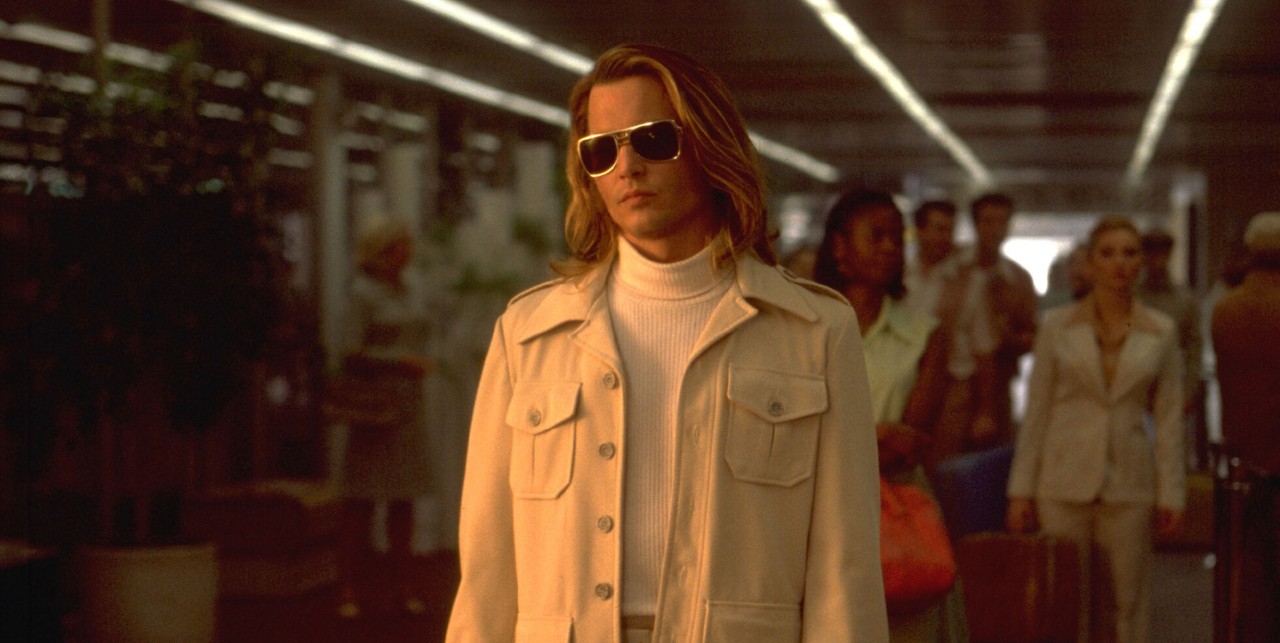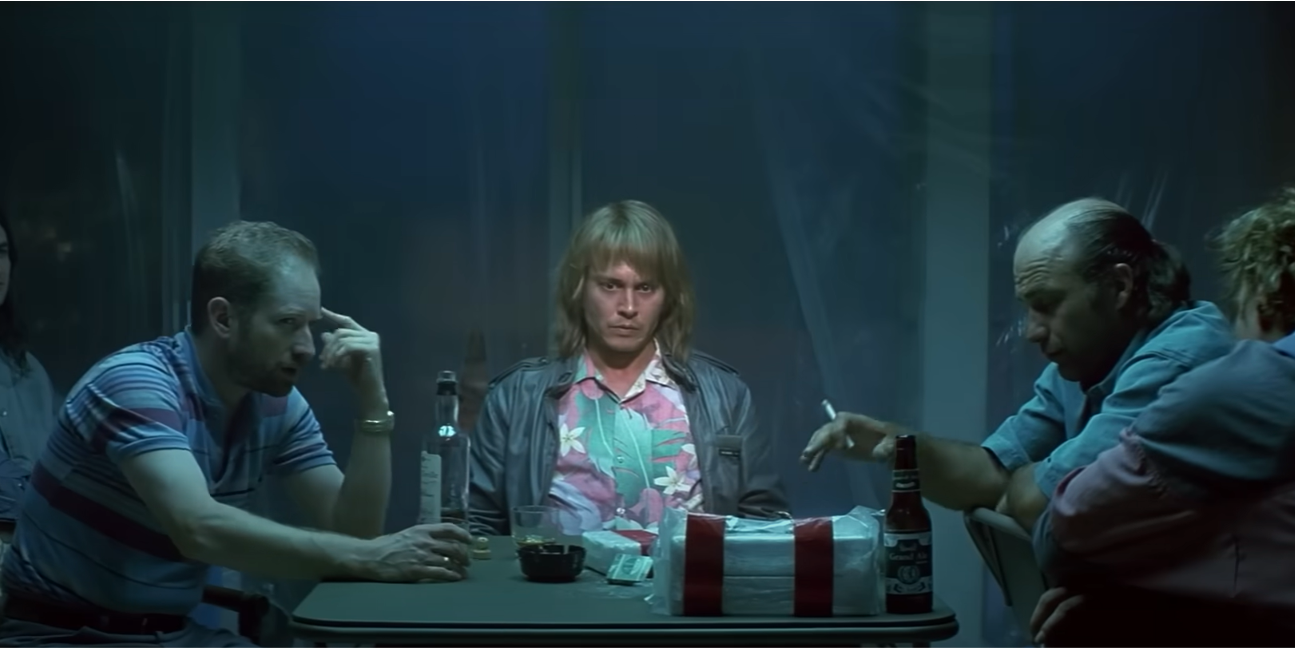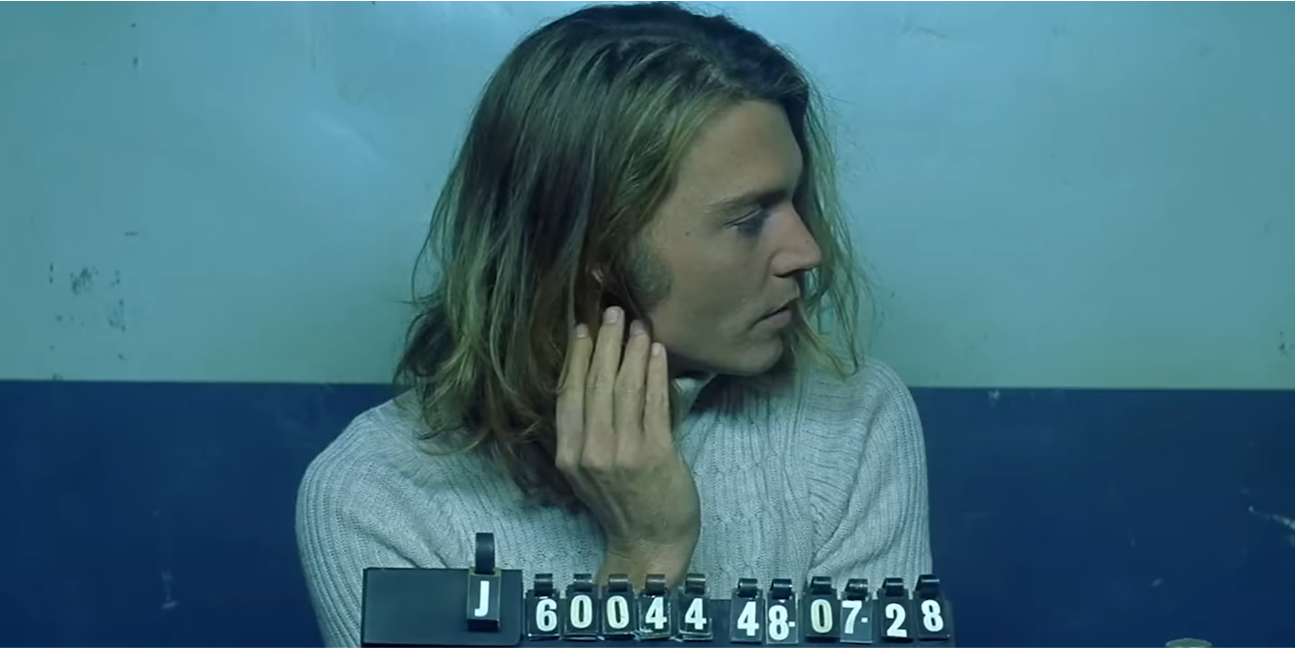The 2001 biopic ‘Blow’ follows George Jung’s journey from a fractured childhood to becoming one of the biggest names in the drug smuggling industry. Initially a marijuana dealer, he takes note of the potential of smuggling across borders, both state and national, and decides to take the leap, earning millions on the way. Upon being hit with loss and betrayal at multiple points, he merely pushes ahead, chasing his one aim in life — earning money. At the end of an exhaustive downward spiral, one choked full of adventure, frivolous emotions, addiction in every sense of the word, and finally, tragedy, George finds himself broken down and alone. As the consequences of his actions await him, the seasoned criminal faces a possible road to redemption. SPOILERS AHEAD.
George Jung Has a True Rise and Fall Story
George Jung from ‘Blow’ is based on the eponymous drug trafficker, who is notorious for functioning as Pablo Escobar’s medium for the American drug trade in the 1970s and 80s. At the height of their collaboration, roughly 80 percent of the cocaine sifting through the homeland’s population was smuggled by the real-life criminal, who calls himself a coke-star. Particularly, ‘Blow’ is an adaptation of Bruce Porter’s chronicle of the real criminal’s life, also titled ‘Blow,’ which is informed by an extensive collection of eyewitness reports, interviews, and a mix of public and private knowledge. While the film presents a more dramatic and romanticized version of history, the book’s rendition is much more grounded, serving as one of the closest accounts of the man who delved too deep into the underworld for his own good.

Nicknamed Boston George, the man had his own opinions on the film, having played a major counseling role in its pre-production. In an audience Q&A session following the movie’s screening, he commented on director Ted Demme’s work, praising his ability to get inside the convict’s head and capture his past. In a separate interview, he complimented Johnny Depp’s performance, calling it accurate and phantasmagorical. The iconic actor portrays George from youth to old age, showing a peek into the struggles of his real-life counterpart, who started out as an academic failure and did a series of odd jobs after first shifting to Southern California, spellbound by its culture and free-spiritedness.
George’s introduction to the world of crime came through his experience selling marijuana in Manhattan Beach, gradually expanding to cover the east end of the country, sourcing and shipping his product directly from Mexico by airplane. While the movie humorously depicts George’s first takeoff and landing, it skips the scarier parts of it. For his first shipment from Point Damia in Puerto Vallarta, he decided to fly the plane himself and ended up getting lost on the way back, going over 100 miles off course. However, he eventually found his way back, learning from the experience and hiring professional pilots from then on. Air shipments would go on to become his modus operandi, giving him the edge over his competition and, over time, making him a sought-after smuggling hotshot.
George Jung Spent Several Years in Prison Before Tasting Freedom Again
Following the end of his prison stint in 1976, George graduated from weed and dipped his toes into the cocaine business, teaming up with Carlos Lehder, who is the inspiration behind the character of Diego Delgado in the narrative. Lehder would go on to become a pivotal player in George’s criminal career, being there for almost every major twist and turn. He introduced George to Pablo Escobar, and later, he became his partner in managing the business in the American landscape. Lehder would eventually cut him out of the deal, choosing to engage with local distributors directly. While in the film, this spells the seeming end of his time with the cartel, in reality, this ended up strengthening his bond with Escobar, who would later advise him to actively testify against his old friend, bringing an end to his ventures.

George had originally refused to snitch on Lehder in order to stay in Escobar’s good graces, adding more layers to his thought process. The lead-up to this complicated situation came in the form of his arrest in 1987, following a raid in his home that was fictionalized in the movie to occur during his birthday party. While his movie version loses all of his wealth and political connections in one fell swoop, the real George avoided prosecution by complying, at once, with the police and the cartel. Nonetheless, his peace was short-lived. In ‘Blow,’ George returns to a life of crime as a last-ditch effort to collect enough funds for a vacation to California with his daughter. However, his real-life counterpart described himself as a thrill junkie who merely used money as a tool, even to the end. This provides a sharp contrast to the movie, which paints the transience of money as a lesson to be learned.
Following his arrest in 1994, George was given a 60-year sentence after he pleaded guilty to three counts of conspiracy and hopped through a number of prisons, eventually settling at the Federal Correctional Institute, Fort Dix, in New Jersey. In exchange for testifying against Lehder, his sentence was reduced to 20 years, leading to an early release on June 2, 2014. After yet another brief stint in prison for violating his parole conditions in 2016, he was released the next year, finally becoming a free man. He compared his entire experience to a rodeo, explaining that one’s job is to stay on the saddle. Having fallen down multiple times, Boston George confidently described his life out of prison as regaining control of the saddle.
George Jung Passed Away in 2021
‘Blow’ raised George to almost a celebrity status, with a horde of journalists and casual admirers eager to learn more about his exploits. As such, he continued his prison pet project, penning ‘Heavy,’ a fictional sequel to ‘Blow.’ Written in partnership with T. Rafael Cimino, the book provides a dramatic account revolving around George and his crew, who break through a Cuban prison and are desperate to get back to their home and families. A correspondent suggested that the book might venture deeper into the smuggler’s criminal activities and include a comeback of the characters of the previous book. Besides co-writing the book, he also starred in a documentary series by Clint Choate, titled ‘Boston George Famous Without the Fortune,’ where he talked extensively about his past.

Indeed, ‘Boston George Famous Without the Fortune’ is aptly titled, as George’s overwhelming popularity in his final decade came after he had lost all of his fortune, both literal and figurative. However, upon being asked, he strongly denied feelings of guilt or regret, claiming that the world has bigger problems than the consequences of his actions. George’s real-life ending is much more positive, with his representative confirming that his daughter, Kristina, reached out to him a few times while he was in prison. This pointed to the possibility of an improved relationship between father and daughter, bringing one of the loose ends in George’s life one step closer to resolution. George Jung breathed his last on May 5, 2021, at his home in Weymouth, Massachusetts, while receiving hospice care for his liver and kidney failure. The Boston criminal had spent his final years as a free man.


